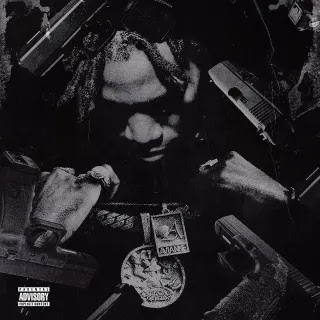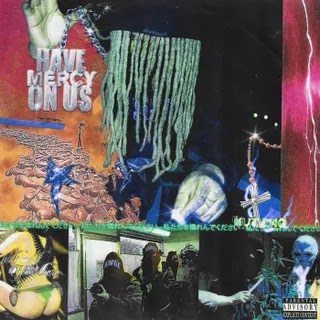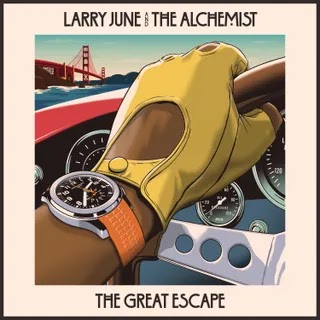Though it’s full of guests and emotional twists and turns, the late rapper’s posthumous album is largely sloppy and inconsequential, a sour note to bookend a storied legacy.
Aging in hip-hop is still a fairly new phenomenon. Death often forces fans and critics to prematurely unpack a rapper’s legacy, whether they were cut down in their prime or before they began to truly blossom. Some don’t live to see 30. Tupac Shakur and The Notorious B.I.G., two of the most important rappers of all time, were murdered in their mid-20s, barely six months apart. Over the last three years, the rap community has lost a string of young talent to gun violence (Pop Smoke), drug overdose (Juice WRLD), and other unfortunate circumstances. This makes it all the more special when a rapper does cross over into middle age, a privilege only some of the genre’s legends have been able to enjoy.
DMX had just turned 50 before he passed away on April 9, 2021. Since the early 1990s, X had funneled a life of unspeakable adversity into music as pious as it was grisly, a guttural voice confronting his own personal hell in order to see heaven. His constant struggles with drug addiction and mental health were a frequent topic in his music, coloring a tumultuous 30-year career that included five consecutive No. 1 albums, several hit singles, and film roles. DMX wasn’t the first rapper to turn their demons into jet fuel, but he lived to build an inspiring legacy that persisted even as his personal problems became public fodder for jokes and memes.
Exodus, his posthumous eighth studio album and first proper album since 2012’s Undisputed, was sparked by the overwhelming fan support shown during his Verzuz battle against Snoop Dogg in July 2020. According to longtime collaborator Swizz Beatz—who also executive produced the project—X wrestled with thoughts of retirement during the recording process, so they attempted to make Exodus as emotionally and musically varied as possible. “There are many different sides of X,” Swizz recently told Complex. “We wanted to channel all those sides on this album.” It may have sounded like a fitting tribute on paper, but Exodus is largely sloppy and inconsequential, a sour note to bookend a storied legacy.
In all fairness, Exodus wasn’t initially intended to be the swan song for DMX’s career. On the contrary; it was supposed to be a comeback album of sorts. Swizz insists that the album was finished within X’s lifetime and that the only change made to the record was subbing out a previously used Pop Smoke verse for one by Memphis rapper Moneybagg Yo on the aptly titled “Money Money Money.” If this truly was X’s vision, his attempt to come back with a big bang with his partner-in-crime by his side, it sputters more often than it pops.
At its best, X’s voice is magnetic, dragging everything in its orbit to the center like Scorpion from Mortal Kombat. However, many of his verses across Exodus sound spent, his trademark bark hollowed out and strained. Both “That’s My Dog,” a reunion track with fellow Yonkers rappers The Lox, and “Hood Blues,” the highly anticipated matchup with Buffalo trio Griselda, begin with their respective trio of guests before ending with an X verse as an attempt to build tension before the man of the hour bursts through the door. Both verses are underwhelming and pale in comparison to their guests, but the “Hood Blues” verse is noticeably lackluster. X’s overdubbed vocals and ad-libs sound more incoherent than menacing, stumbling through bars like a boxer on the ropes while Westside Gunn, Conway the Machine, and Benny the Butcher rap circles around him. This verse should’ve never left the studio.
The verse is also a microcosm of Exodus’s most glaring flaw: This is a feature-heavy album—all but two tracks have guests—that put X in various uncomfortable spots. On “Money Money Money,” he and Moneybagg Yo flail over chintzy organ keys and drums, operating on two completely different wavelengths. “Skyscrapers” with U2 frontman Bono and “Hold Me Down” with Alicia Keys are stabs at pop balladry that attempts to marry X’s gruff motivational talk with sappy swelling instrumentals but never truly find a balance. “Bath Salts,” a nearly decade-old track that was initially leaked during a 2017 beat battle, houses X’s best verse on the album but can’t help being outshined by JAY-Z and Nas’ second reunion of the year. Exodus has the most features of any DMX album, and whether they were his idea or not, it’s clear much of the star power overwhelmed his usual gravitational pull.
A handful of inspired moments prevent Exodus from fully succumbing to mistakes and whiffs. Swizz seems to be having fun behind the boards. “Take Control” teases a modern swing out of a well-flipped sample of Marvin Gaye’s “Sexual Healing” to create a nice slice of rap-funk for X and Snoop Dogg’s horny uncle bars. “Hood Blues” is a decent aping of the grainy Griselda aesthetic that wouldn’t sound out of place on any of their most recent projects. “Hood Blues” also houses one of the album’s handfuls of truly arresting moments: “I ain’t 50 years old for nothing,” X growls on the song’s outro, confronting his mortality in more literal terms than he likely realized.
But the album really takes off on its final two tracks. “Letter to My Son (Call Your Father)” abandons all pretense for a heart-to-heart between X and his son Exodus about fading love between parents as he extends an olive branch (“We could've been best friends all along/But it kinda defeats the purpose of the song”). It’s a heartfelt moment quickly followed by “Prayer,” a two-minute prayer session recorded at Kanye West’s Sunday Service at Coachella 2019. These two moments are the closest X gets to the life-or-death anxiety of earlier albums like It’s Dark and Hell Is Hot, his love for his family and his God pushing him through the ring of fire.
Posthumous releases are never easy, though DMX’s Exodus stands in a unique position. It wasn’t A&R’d to death like Pop Smoke’s Shoot for the Stars Aim for the Moon; it wasn’t cobbled together from years-old recordings like any Tupac album released after 1996. For all its shortcomings, it’s a genuine effort propelled by a sense of purpose instilled from artist to producer. DMX lived long enough to know his legacy was secure, but he still deserved a better sendoff than this.
















0 comments:
Post a Comment